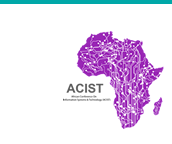Location
Harare, Zimbabwe and Virtual
Start Date
12-9-2024 11:50 AM
End Date
12-9-2024 12:15 PM
Description
The pandemic's impact on education in Africa, particularly Southern Africa, has been quite severe. This has led to a strong desire to create new educational solutions in response to the crisis. As a result, universities embraced blended learning, leading to a decrease in face-to-face teaching and learning but guaranteeing continuity in learning. Organizational support for women academics is imperative for the effective implementation of blended learning. Due to traditional gender norms, working women continue to bear the primary responsibility of childcare, often facing significantly greater demands on their time and energy than their male counterparts. The purpose of this study is to investigate the mediating role of perceived organizational support on blended learning and job performance among women academics at University A in South Africa and University B in Zimbabwe. Under a positivist philosophy, the study employed social exchange theory and a quantitative research approach. A stratified sampling approach was used to select a sample of 148 from a population of 266 women academics. The study findings indicate that blended learning, perceived organizational support, and job performance have a positive correlation. However, perceived organizational support highly mediates the influence of blended learning on job performance.
Perceived Organizational Support on Blended Learning, and Job Performance of Women Academics Post Covid Pandemic.
Harare, Zimbabwe and Virtual
The pandemic's impact on education in Africa, particularly Southern Africa, has been quite severe. This has led to a strong desire to create new educational solutions in response to the crisis. As a result, universities embraced blended learning, leading to a decrease in face-to-face teaching and learning but guaranteeing continuity in learning. Organizational support for women academics is imperative for the effective implementation of blended learning. Due to traditional gender norms, working women continue to bear the primary responsibility of childcare, often facing significantly greater demands on their time and energy than their male counterparts. The purpose of this study is to investigate the mediating role of perceived organizational support on blended learning and job performance among women academics at University A in South Africa and University B in Zimbabwe. Under a positivist philosophy, the study employed social exchange theory and a quantitative research approach. A stratified sampling approach was used to select a sample of 148 from a population of 266 women academics. The study findings indicate that blended learning, perceived organizational support, and job performance have a positive correlation. However, perceived organizational support highly mediates the influence of blended learning on job performance.



